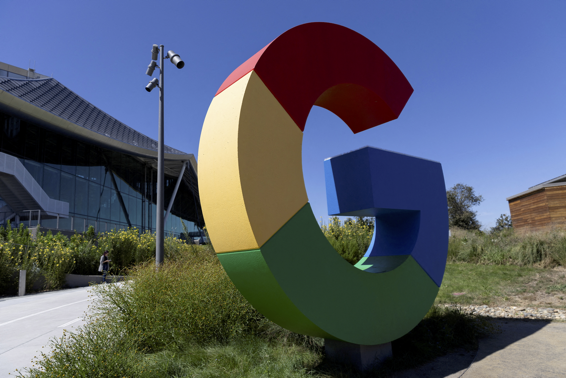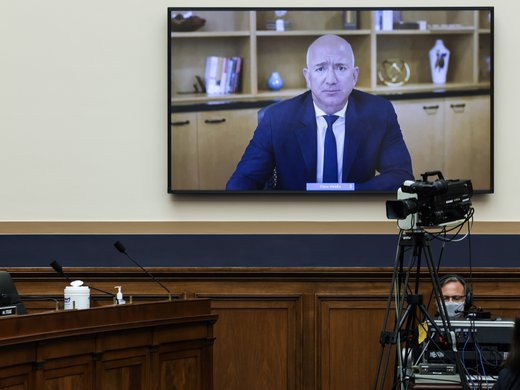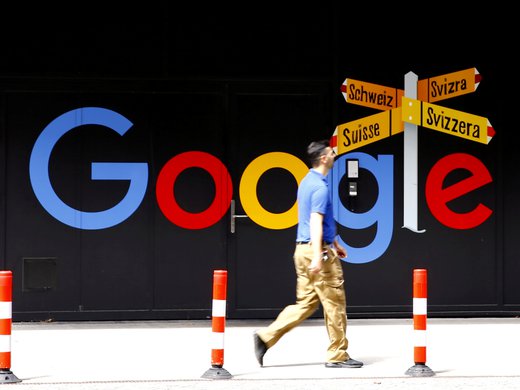In August 2024, US Judge Amit Mehta rendered an unsurprising decision: Google, with its long-standing grip on approximately 90 percent of the online search market, is a monopolist.
The decision was not just the culmination of a case launched by the US Department of Justice (DOJ) in 2020, but also a reflection of the broader turn toward stricter treatment of digital giants by antitrust authorities around the world.
Paired with the DOJ’s recently wrapped trial against Google’s alleged monopolization of the online advertising technology market, two of the core technologies underlying the internet as we know it are facing much-needed scrutiny. Executed effectively, that scrutiny has the potential to unlock competition and create the foundation for new models of navigating the internet and building businesses online.
But while the DOJ’s victory on the search front is an important and necessary step, the success of the antitrust action hinges on the selection of an effective remedy to Google’s monopolistic conduct.
In deciding the remedy, Judge Mehta has wide latitude. While a goal of the remedy is to address the underlying competitive distortion, this can be read broadly to include solutions outside the narrow band of Google’s search business. Solutions floated have included opening up the underlying index that powers Google search to competitors as well as the sale of key parts of Google’s empire, such as the Chrome browser, Android mobile operating system and components of the company’s advertising technology infrastructure.
There is nothing worse than going through the multi-year and multi-million- dollar endeavour of antitrust investigation and litigation only for the case to fall flat on a remedy that does not create a more vibrant marketplace. A virtue of antitrust is that it provides a set of tools to explore emerging issues in markets and develop case-by-case responses tailored to a specific conduct and context. But this is a time-and resource-intensive process. The search decision comes nearly five years after the 2019 announcement that the DOJ was investigating digital platforms for antitrust violations. A remedy that does not go far enough not only wastes that dedicated time and effort, but it also shuts the door on future antitrust action on related conduct.
Unfortunately, the history of antitrust enforcement is littered with examples of remedies that did not rise to the occasion. Complex “thou shall” or “thou shall not” behavioural remedies, founded on the belief that monopolists would abide by the rules, prove difficult to monitor and enforce. Structural remedies that force the sale of lines of business tend to fare better, but even these can result in stranded assets or Potemkin competitors propped up for the purposes of getting a merger by regulators.
International antitrust efforts in digital markets have made the need for decisive remedies clear. Despite the European Commission (EC) leading the world in their challenge of Google across several important markets, the consequences of the EC’s efforts have been largely superficial. Fines in the billions of dollars make for good headlines and may deter smaller players, but these are the cost of doing business for firms that have positioned themselves at the cent re of the digital economy. While behavioural remedies — like the choice screens the EC implemented to break the power of default search selections on Google’s Android platform — may have increased traffic to competitors, Google’s place in the search and online advertising market seems as unassailable as it was a decade ago.
The lesson from European regulators is that remedies to competition issues must focus on the structural sources of monopoly and breaking the cycle of their self-reinforcing power.
A successful remedy in the search case will have several attributes. It will take a wide view of what drives Google’s dominance in search and change the direction of incentives that have concentrated so much power in a single entity. It will be forward-looking, not just aiming to change the competitive field today but for years to come, understanding we cannot fully anticipate those future directions. It will also be simple enough in its structure that the effectiveness of its enforcement can be easily ascertained, even though expert resources can and should be devoted to this task. While the decision is ultimately Judge Mehta’s, there are encouraging signs that the DOJ is aiming for a remedy that hits these notes.
A remedy that delivers is important not just for the future of the online search market, but also for efforts to use antitrust to rein in the power accumulated by big tech. It is entirely possible that, like in the early 2000s with the shift to the Bush administration in the heat of the Microsoft antitrust fight, a change in government scuttles the ambition of this historic victory. More than two decades ago, the DOJ team aiming to break up the software giant was replaced with one more agreeable to settlement, and the software giant escaped intact. Similar consequences could arise on either side of the aisle in 2025.
For the Democrats, while Vice President Kamala Harris has signalled support for a continued general pushback against corporate power kicked off under President Joe Biden, her kitchen cabinet is composed of Silicon Valley’s C-suite, and major donors have been pushing for a lighter touch on tech. On the Republican side, despite the selection of J.D. Vance, the Ohio senator who has repeatedly praised the work of Federal Trade Commission Chair Lina Khan, as a contender for v ice p resident, the anger against big business that animated Donald Trump’s 2016 campaign appears firmly in the rearview as he embraces support from big oil to b ig crypto.
The outcome in November will affect the vigor of international antitrust efforts as well. The global nature of these companies is reflected in the global effort to rein in their dominance. The work of international jurisdictions has a reinforcing quality for peer jurisdictions. Heading to trial on September 9 , the DOJ’s second prong of it s efforts against Google is the charge that the search giant has entwined itself in the advertising lifeblood of the internet through acquisition, customer lock-in and manipulation. The DOJ argues that these practices have created a system in which Google is able to pocket 30 cents of every dollar that flows through its omnipresent advertising stack.
It is this American case that provided Canada’s Competition Bureau with the shot in the arm to broaden the ambition of its own long-running investigation into the giant’s practices in the advertising market. Canada began investigating Google in 2020 and only expanded that investigation in early 2024. In documents submitted to the court to justify the expanded investigation, the Bureau points directly to the DOJ’s ad tech case and its concern over the likelihood that similar practices are affecting the Canadian publishers and advertisers that depend on Google’s ad tech business. Were the DOJ to back down on its efforts to break open Google’s advertising monopoly post-election, the Bureau would lose an important touchstone justifying a more assertive approach to protecting competition.
A fair criticism of antitrust is that it takes years to prove what, to many, seems plainly obvious. That it took so long to declare a company that holds a near global 90 percent market share a monopoly should be an opportunity to consider how the application of these laws can be simplified and expedited. But very little is simple when power is being challenged. The DOJ’s victory in the Google search case should be recognized as a historic point in the global effort to rebalance public and private power.
Whether it proves to be an apex or just a stepping stone remains to be seen.



